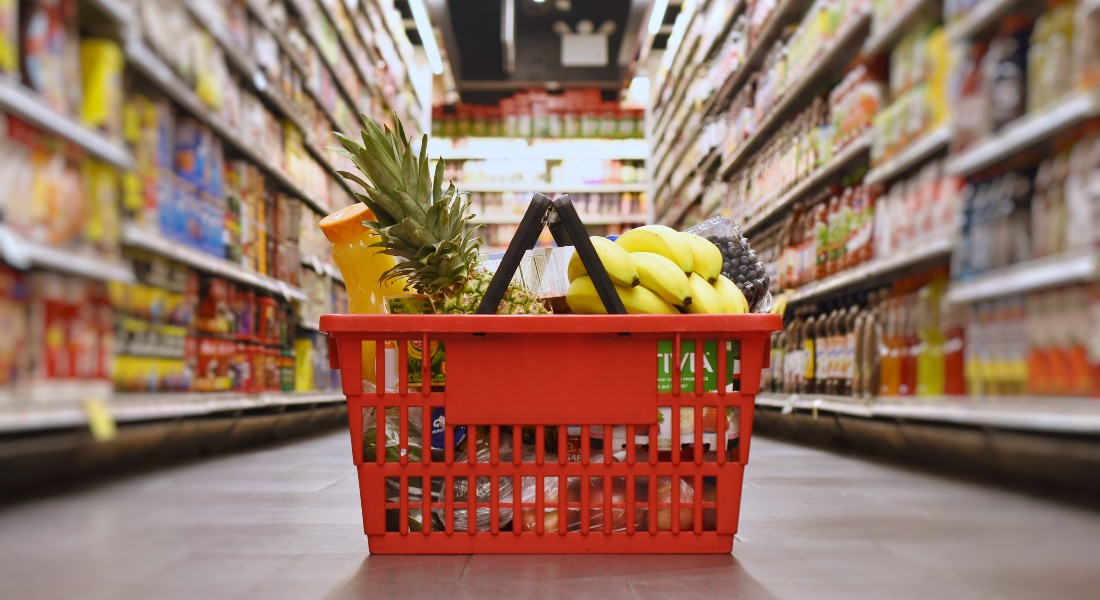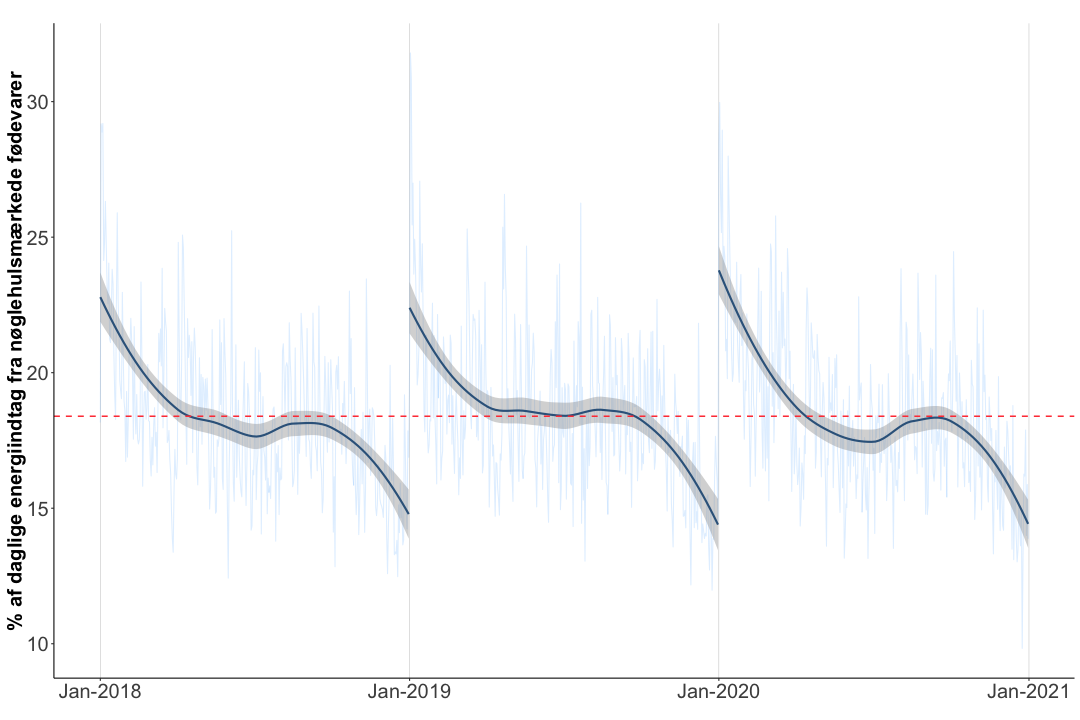Healthy shopping peaks in January
Year after year, January is the month when we load our shopping baskets with the healthiest foods, according to new data from the University of Copenhagen. Is it because so many New Year's resolution makers are seeking to embrace healthier lifestyles? Whatever the reason, the data also show that we slip back into old habits quickly and shop for less and less healthy items before hitting rock bottom eleven months later.

There is no limit to the number of New Year's resolutions we can muster as champagne corks pop and a fresh new year begins. We confidently promise ourselves to run marathons, eat no fewer than five fruits and vegetables a day and so much more.
But old habits die hard and reality catches up according to new calculations from the University of Copenhagen’s Department of Food and Resource Economics. Data show that when it comes to shopping for healthy foods, we enter the new year swinging – filling our shopping baskets with less sugar, fat and salt, and more dietary fiber and whole grain. Things go steadily downhill from there, a pattern that repeats itself year after year.
"The turn of the year has a pretty wild effect on consumer habits. And, it’s striking that the pattern repeats itself each and every single year. People shop healthiest in January, and gradually less and less so until an ultimate collapse with Christmas parties and December sweets. Come January, the cycle begins anew," explains Carl-Emil Pless, a PhD at the Department of Food and Resource Economics who researches consumer behaviour. The picture is the same when researchers study how people live up to general dietary recommendations. Here, things go very well in January, before heading downhill for the remainder of the year.

Age may play a role
According to the researchers, a successful New Year's resolution hinges upon a person’s ability to exert self-control. In an economic context, self-control refers to how good we are at staying focused on long-term goals rather than succumbing to here and now temptations. Within this context, we fight against the unique power of the present, which can make it difficult to resist being enticed by whatever it is that might be ruinous to a New Year's resolution.
"Plenty of research shows that we ascribe considerable value to the present, which means that we’ll often make short-term decisions that contradict our longer-term goals. Experiments show that people are good at appreciating economically sensible choices when asked to compare amounts to choose in the near and distant futures. If you mix the present and temptation into the decision-making process, the results become murkier," explains Carl-Emil Pless.
However, new habits take time and effort to soak in. One of the reasons it can be difficult to live up to New Year's resolutions is that a constant battle is being waged by competing personalities within us. One is sensible and thinks long-term. The other is impulsive and would rather seize the moment. This divergence causes problems until a new behaviour becomes habitual.
"We have the 'long-term self', which is what speaks when you make a New Year's resolution. The 'long-term self' is rational and can, for example, express a desire to want to eat healthier in the near future. The 'short-term self' expresses itself when we are going to the gym on a cold, dark Monday afternoon – but end up on the couch because it seems nicest, here and now," explains Sinne Smed, an economist who also researches consumer behaviour.
Research shows that while some of us are equipped to exert better self-control than others, the trait can be trained. Thus, on average, older people are better at managing their impulses and focusing on long-term goals than younger people.
"Various studies report that older people have more self-control, making them better at complying with New Year's resolutions, among other things. The research explaining why remains uncertain,” explains Carl-Emil Pless.
Upping penalties and rewards
To be successful with your New Year's resolution, the researchers suggest using different methods that commit you to a long-term goal and make it costly if your 'short-term self' convinces you to slide.
"There are many experiments which show that imposing a consequence works to keep you from failing in part of your project. This could be a social cost, as a result of widely sharing your New Year's resolution or perhaps having fixed meeting times with a training partner who’ll be waiting for you. It could also be a financial cost, where you give money to a friend every month, who will either return it if you stick with your resolution, or donate it to a charity should you fail," says Sinne Smed.
"It may sound a bit harsh, but a person needs to work out how to punish themselves more if they fail in advance and, conversely, increase rewards if they succeed with their New Year's resolutions and want to keep at them," concludes Carl-Emil Pless.
Contact
Sinne Smed
Associate Professor
Department of Food and Resource Economics
University of Copenhagen
Phone: +45 35 33 68 49
ss@ifro.ku.dk
Carl-Emil Pless
PhD
Department of Food and Resource Economics
University of Copenhagen
Mobile: +45 22 52 01 96
cda@ifro.ku.dk
Michael Skov Jensen
Journalist
The Faculty of Science
University of Copenhagen
Mobile: +45 93 56 58 97
msj@science.ku.dk
